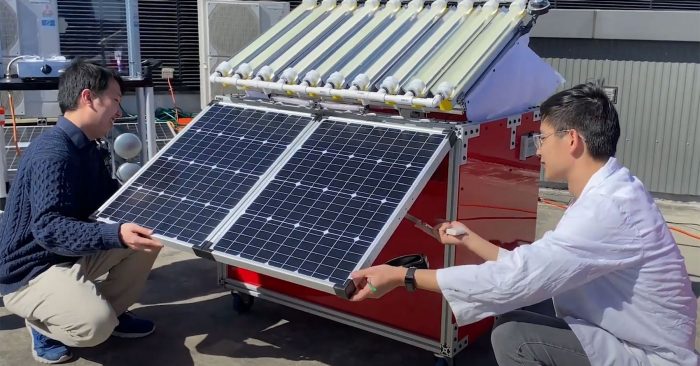UNSW Engineering Receives Funding to Lead Global Solar Hydrogen Research Hub
Key Ideas
- UNSW Engineering, led by Prof. Rose Amal, secures $749,600 funding from GLODIP to establish a global hub for solar hydrogen research, positioning Australia as an industry leader.
- The initiative aims to accelerate scientific advancements in photocatalytic solar hydrogen production technology, aligning with the 2050 net-zero emissions target.
- The hub will facilitate international collaborations in key areas like Photocatalyst Discovery and Techno-Economic Studies, fostering green energy innovation and talent development.
- Through strategic partnerships and mentorship programs, the hub will drive breakthroughs in solar-to-hydrogen technologies, creating opportunities for industrial adoption and commercialization.
UNSW Engineering researchers, under the leadership of Scientia Professor Rose Amal, have secured $749,600 funding from the Global Science & Technology Diplomacy Fund (GLODIP) to establish a world-leading hub for solar hydrogen research. The aim is to position Australia at the forefront of renewable energy innovation by developing processes that produce green hydrogen from sunlight. This initiative aligns with the 2050 net-zero emissions target and aims to address intermittency and decarbonize hard-to-abate sectors by converting sunlight into chemicals and fuels like hydrogen.
The Sunlight-to-Hydrogen Research Hub, a collaborative effort involving various international institutions, will focus on advancing photocatalytic solar hydrogen production technology. The hub will drive scientific advancements and commercialization efforts, fostering international research collaborations in areas such as Photocatalyst Discovery, System Engineering, and Techno-Economic Studies.
Prof. Amal emphasized the importance of strategic partnerships and the utilization of advanced tools to develop scalable and cost-effective solar hydrogen systems. The initiative aims to not only enhance Australia's capacity in solar hydrogen technology but also create new opportunities in the green energy sector. Additionally, the hub will play a crucial role in empowering the next generation of scientists and engineers through mentorship and training programs.
The Australian Academy of Technological Sciences and Engineering and the Australian Academy of Science have highlighted the significance of the GLODIP funding in fostering global collaborations, building STEM skills, and promoting industrial and economic growth. The initiative aims to strengthen links between Australian science and technology leaders and regional partners, showcasing Australia's potential in the field of renewable energy.
Topics
Projects
Renewable Energy
Innovation
Research
Grant Funding
International Collaboration
STEM Skills
Photocatalysis
Science Diplomacy
Latest News
